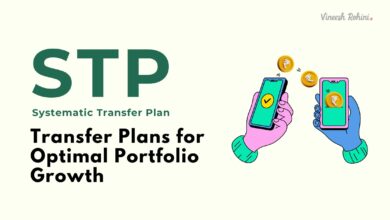Private Student Loans vs Federal Student Loans
Introduction:
The pursuit of higher education often comes with a hefty price tag, leading many students to rely on loans to finance their education. When it comes to borrowing money for college, students and their families have two primary options: private student loans and federal student loans. Both types of loans have their pros and cons, and understanding the differences between them is crucial for making an informed decision. This essay will explore the key characteristics of private and federal student loans, comparing and contrasting their features, eligibility requirements, interest rates, repayment options, and other important factors.
Overview of Private Student Loans:
Private student loans are funded by private financial institutions such as banks, credit unions, and online lenders. These loans are not backed by the government, meaning that the terms and conditions are set by the individual lender. Private student loans are typically used to cover gaps in funding after federal loans, scholarships, and other financial aid options have been exhausted.
A. Eligibility Requirements:
Private student loans often require a good credit history and a co-signer, especially for undergraduate students who have limited credit experience. Lenders consider factors such as credit score, income, and debt-to-income ratio when evaluating applicants.
B. Interest Rates:
Interest rates on private student loans vary depending on the borrower’s creditworthiness and the lender’s policies. Generally, private loans have higher interest rates compared to federal loans. The rates may be fixed or variable, and they can significantly impact the total cost of borrowing over time.
C. Repayment Options:
Private student loans offer a range of repayment options, including immediate repayment, interest-only payments while in school, or deferred payments until after graduation. However, these options may come with additional fees or higher interest rates, which borrowers should carefully consider.
D. Borrower Protections:
Compared to federal student loans, private loans typically offer fewer borrower protections. Private loans may not provide income-driven repayment plans, loan forgiveness programs, or deferment/forbearance options in case of financial hardship. Borrowers should carefully review the terms and conditions of their private loans before committing to them.
Overview of Federal Student Loans:
Federal student loans are issued and guaranteed by the U.S. Department of Education. These loans offer various benefits and protections to borrowers, making them a popular choice for many students.
A. Eligibility Requirements:
Federal student loans are available to most U.S. citizens or eligible non-citizens who complete the Free Application for Federal Student Aid (FAFSA). Unlike private loans, federal loans do not require a credit check or a co-signer, making them more accessible to students with limited credit history.
B. Interest Rates:
Federal student loans generally have lower interest rates compared to private loans. The interest rates for federal loans are set by Congress and are typically fixed for the life of the loan, providing borrowers with more stability and predictability in their repayment plans.
C. Repayment Options:
Federal loans offer flexible repayment options, including standard repayment, income-driven repayment plans, and loan forgiveness programs. Income-driven repayment plans base monthly payments on the borrower’s income and family size, ensuring that loan payments are affordable based on their financial situation.
D. Borrower Protections:
Federal student loans provide several borrower protections, such as deferment and forbearance options, loan forgiveness programs for public service or specific professions, and the potential for loan discharge in cases of disability or death. These protections offer a safety net to borrowers who may face financial hardships or unexpected circumstances.
Factors to Consider When Choosing Between Private and Federal Student Loans:
When deciding between private and federal student loans, several factors should be taken into account:
A. Cost of Borrowing:
Private student loans often have higher interest rates, which can result in more significant long-term costs. Federal
loans, with their lower interest rates, may be more affordable for many borrowers.
B. Repayment Flexibility:
Private loans may offer some flexibility in repayment options, but federal loans provide a wider range of choices, including income-driven plans and loan forgiveness programs, which can be beneficial for borrowers with limited financial resources.
C. Borrower Protections:
Federal loans offer more comprehensive borrower protections compared to private loans. The availability of deferment, forbearance, and forgiveness programs can provide significant relief to borrowers facing financial difficulties.
D. Credit and Co-signer Requirements:
Private loans often require a co-signer and a good credit history, making them less accessible to students without an established credit record. Federal loans do not have credit requirements, ensuring that all eligible students can access the necessary funds for their education.
Conclusion:
Choosing between private and federal student loans is a significant decision that can have long-lasting implications for borrowers. While private loans can fill the funding gaps left by federal loans and other financial aid, they come with higher interest rates and fewer borrower protections. On the other hand, federal loans provide more favorable terms, including lower interest rates, flexible repayment options, and various borrower protections. It is essential for students and their families to carefully consider their financial circumstances, future plans, and the long-term costs before making a decision on which type of loan to pursue. Ultimately, selecting the most appropriate loan option will depend on individual needs, resources, and the overall financial landscape.



